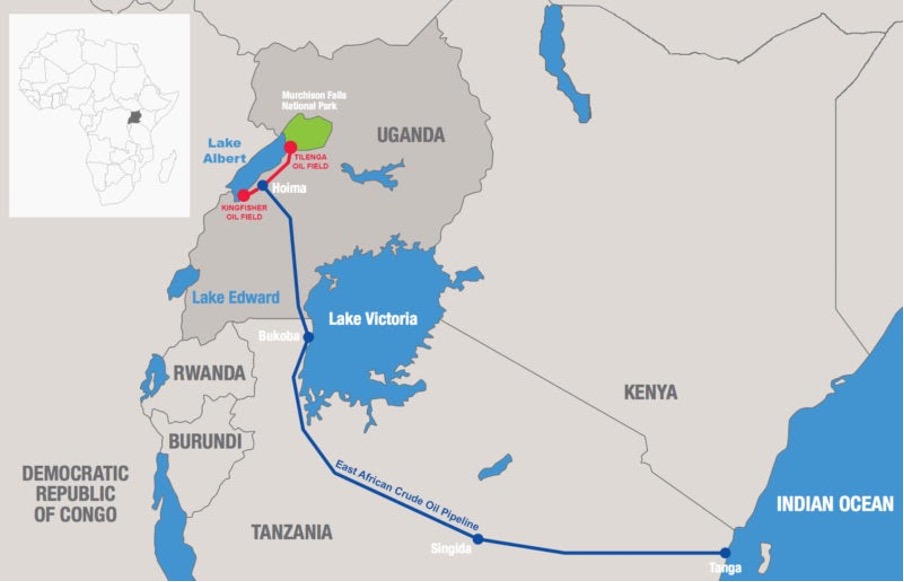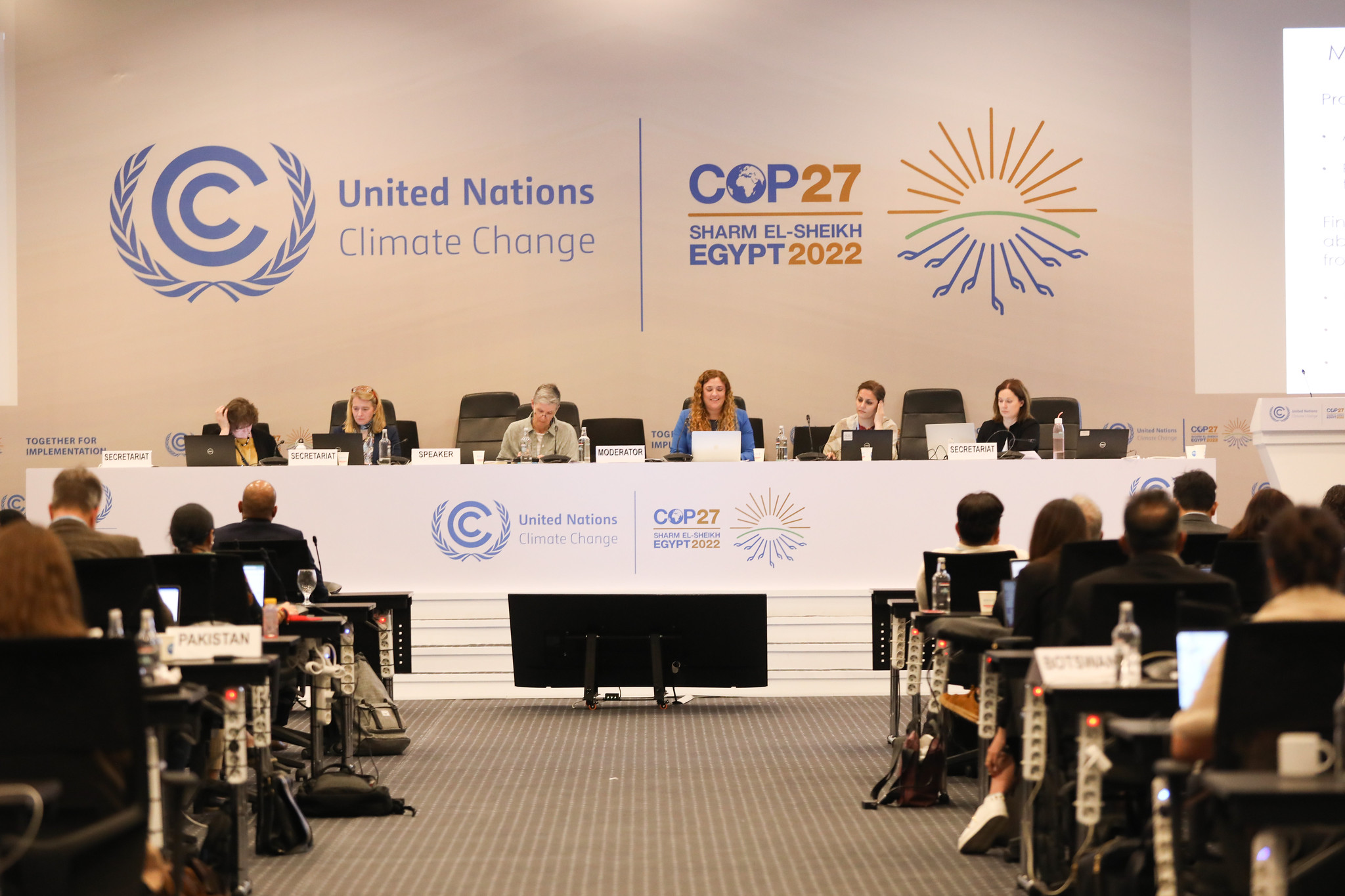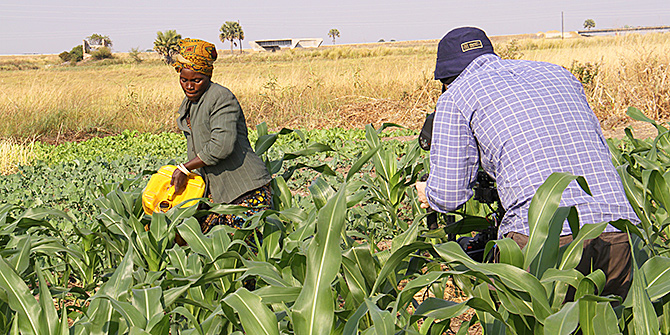Debates about the East African Crude Oil Pipeline (EACOP) and the EU’s move to halt the project dominated headlines in the lead-up to COP 27. Most discussions have focused on the project’s future macroeconomic and environmental effects in addition to the EU’s meddling in matters of Uganda and Tanzania as sovereign states. However, Christopher Liberty writes that certain issues, which are equally pressing, were side-lined. For instance, the present impact of the EACOP project land acquisition, including human rights violations, exploitation, delayed compensation, violence, and the wrongful imprisonment of human rights defenders.
This article is part of the series “Through your eyes“, which targets young and emerging African writers interested in African affairs to share their lived experiences of key political events and current affairs.
The East African Crude Oil Pipeline (EACOP) will run from Kabaale, Hoima district in Uganda’s Albertine Graben to the Chongoleani Peninsula (near the port of Tanga in Tanzania). The $3.5 – $5 billion pipeline is designed to transport crude oil over 1,443 kilometres between the two East African countries.
Once completed, the EACOP will be the world’s longest-heated oil pipeline.

Although commercial extraction and construction activities are still only preliminary, earlier activities like route planning and land acquisition have already highlighted significant negative impacts on local communities. Project land acquisition efforts have already led to the displacement and resettlement of 13,161 people across 64,000 hectares.
Independent EACOP assessment reports indicate shortcomings in project-related activities and consultation processes, with threats and retaliation against human rights and environmental defenders, improper land valuation, and unfair compensation processes. These and other socio-economic factors have severely affected not only the rights of activists and community leaders but also the livelihoods and food security of landowners, who are terrified to speak out.
Current debate – elephants fighting
Dominant EACOP debates have focused on speculations about the project’s future impact and the European Union Parliament’s jurisdiction, neglecting the project’s present consequences. It is, therefore, important to draw attention to the evolving impact of EACOP and institute appropriate mechanisms to ensure that the project’s Resettlement Action Plan (RAP) is implemented correctly.
On the one hand, attention is on the potential environmental repercussions of the project and calls for urgent action to prevent the effects of climate change. Omar Elmawi, the coordinator of the Stop EACOP Campaign, noted during his submission at COP 27 that EACOP is a ‘carbon bomb’ that will emit over 34 million tons of Carbon dioxide every year for the next 20 years. On the other hand, there are geopolitical concerns regarding the European Union Parliament’s call to halt EACOP.
Afrocentric commentators cite Ha-Joon Chang’s Kicking away the Ladder, a book that argues that Western economic powers are denying developing countries access to the same development trajectory they took, which included industrialisation facilitated by the massive extraction and consumption of fossil fuels.
Whilst Western countries expect developing countries to abandon their fossil fuel projects to save the planet, Chang’s argument captures the irony of how these wealthy nations did not pursue such climate policies while ascending the economic ladder in the nineteenth century.
In this context, one poignant and powerful African saying comes to mind: “When elephants fight, the grass gets trampled.” Indeed, displaced people’s voices continue to be drowned out by headlines that focus solely on macro-debates concerning geopolitical issues between the EU and Uganda and Tanzania. According to the EACOP RAP, more than 90% of the pipeline route travels through rural areas, and the majority of the project’s affected families or individuals rely on agriculture for a living.
The initial notification of the farming limits and the compensation delays have negatively affected households. Due to project land acquisition terms, affected farmers were forced to grow only seasonal crops, which significantly reduced their revenue. In Tanzania, there are 9,513 project-affected persons (PAPs) and 3.5 per cent are physically displaced. In Uganda, there are 3,648 PAPs, and 5.5 per cent of these are displaced.
Allegations of violence, intimidation, exploitation, and corruption in the route-mapping and land valuation exercise have also left communities frustrated by the lack of accountability. These unheard voices matter in defining the progress of EACOP since they represent the majority of the communities most affected by the project.
Whilst the debate about the future economic and environmental implications of EACOP is necessary, it should not distract us from the ongoing injustices and human rights violations that project land acquisition is meting out to local communities.
As we call upon all stakeholders to honour their climate change and environmental responsibilities; as we critically examine the geopolitical tensions between the EU and the two East African countries, we must also ensure that EACOP parties implement the Resettlement Action Plan according to international standards and per human rights principles.
Photo by Photothèque AT on Flickr. Licensed under CC BY-NC-SA 2.0





